Podcast: Play in new window | Download
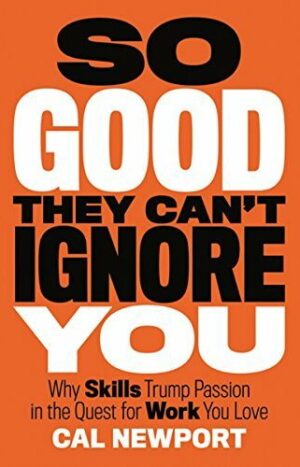 Do you need passion to love your work? Purpose? Maybe the right work?
Do you need passion to love your work? Purpose? Maybe the right work?
What is the truth about that?
One of my former students sent me an email today. He is a former student, because I could not get him to achieve any results whatsoever.
But he has sent me valuable information before, so I read the email.
He sent me to a short video about Cal Newport’s book: Be so good they can’t ignore you.
So I watched it. It was good. 30% truth value. Same as the book. 30% truth value is exceptional… but…
It is a topic that is in the forefront of most people’s mind: how to have the eight plus hours of work, the activity that provides you with enough money to live on, enjoyable.
Not drudgery. Not feeling like a tool, not feeling like a slave. And not something you have to do, but something you get to do. Not something that after that you can have your own life… something you are deprived of for eight whole hours every day.
Thousands of books have been written to these people… and all of them are low truth value.
When something is only 30% truth value, you can be sure it won’t work unless you find the missing truth.
And 30% is the highest truth value of a book I have ever seen.
OK, before I add my two bits that raise the truth value to 100%, watch the video.
and here is his one-page summary
OK, so he is dealing with the mindset. Turn off the idea that you have to have passion, or even liking of a job, and turn on the craftsman’s attitude: getting good at it.
Wonderful.
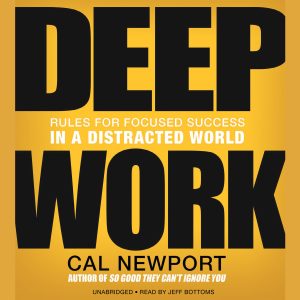 But… and here is the missing 70%.
But… and here is the missing 70%.
I cover part of it in an article I wrote before: the mechanics… The skills you’ll need to do the job well. Well enough to get good at it.
And I added another piece this past week after I read an article by Pia Silva.
In an article I read on Forbes she says:
Unless you have a process that is flawless, you’ll never be an expert.
I didn’t know that… or more accurately, I never thought of that.
In my Kolbe test I am on the border of being resistant to systems, and yet I systematize everything in my life. So something is wrong with the Kolbe test results… maybe I didn’t know myself as well at the time (10 years ago) as I thought. The Kolbe test uses self grading to make important assessments about you. Self-grading that unless they are accurate, you are screwed… royally.
I am not good at systematizing. Systematizing is when you can see what to do first, what to do next, and how to take something, reliably, to the accomplishment.
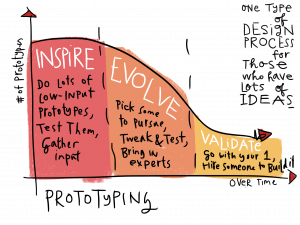 It’s nearly impossible to teach. the intellectual capacities are missing for many people. foresight, comparing two-three things that don’t exist. hold an entire project in your head in a way that you can change their order.
It’s nearly impossible to teach. the intellectual capacities are missing for many people. foresight, comparing two-three things that don’t exist. hold an entire project in your head in a way that you can change their order.
One could say: it’s pure mathematics. Maybe.
It is actually a skill that one develops through THOUSANDS of trials and errors.
You start with something small or smaller. and once you can handle more components you graduate to something more complex or complicated.
I have 90% of my life systematized. And the 10%: it’s a total mess. I resist doing it. And some parts: I am already working on it.
Recently I have taken on a big project: creating courses, creating kindle books with a system, so I can make many, and they will be so good, they will sell.
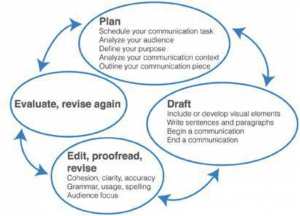 I already have many skills, many processes, but none for the big project.
I already have many skills, many processes, but none for the big project.
So I am going through the first stage every project has to go through: formulation.
Formulation sounds easy: you talk… but it’s the hardest phase of any project.
Most people will not hang out in the formulation long enough to have any hopes to have a successful project.
You need to make sure you have all the skills you’ll need. Then you need to make sure you learn process from people who have one. Next you need to gather all the resources…
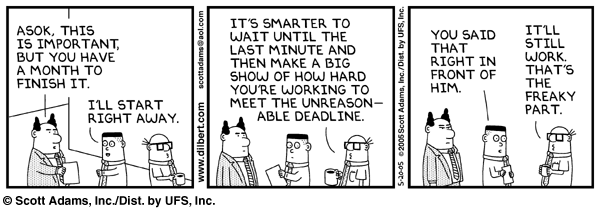 And you need a context that will give you empowerment through this hardest of phases…
And you need a context that will give you empowerment through this hardest of phases…
Most people just jump in… don’t look left, don’t look right… jump.
The Kolbe test says that these people are quick-starts, and it is important if you want to do projects.
- In my experience, people who are truly quickstarts rarely succeed. They jump into the empty swimming pool and hurt themselves.
Most people are like that…
Another ‘never succeed’ client thinks that research will solve the problem.
You don’t develop skills with research, you don’t develop a process with research, you are wasting time. Your attention is on the wrong thing… and you are a non-starter.
But I digress…
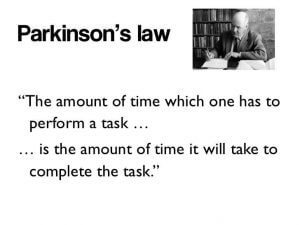 I want to keep my focus on people who are already working…
I want to keep my focus on people who are already working…
…and bring them to a place where they can enjoy their work… where they can have work as part of their lives, instead of a chunk that is stolen from them, and life begins when work ends.
What do you do? It looks impossible, doesn’t it? Or magical, if you can believe that it will happen.
The three missing big elements are
- 1. remove the distractions that remind you that real life is outside of work. I first did that in 1986… and I have written articles about that.
- 2. look to see if there are any skills in your current job that you could get better at, and start learning those skills
- 3. look at the how. And look at the order of things. Then create a system inside which, with practice, your work becomes routine, like a dance. Requiring no thinking, no decision making, it is seamless and goes like clockwork.
In the magazine I published for 11 years, one of the most time consuming jobs was preparing color photos to be published on newsprint paper in black and white. I worked on developing a process so I can get a person from the street, and have them ready to turn out reliable publishable pictures, with beautiful skin tone, in a few hours or training.
The secret of my longevity as a magazine publisher was my willingness to develop processes.
You know who, what, when, so there is nothing that’s hectic, nothing that’s unexpected, nothing that needs to be decided on the spot.
Why?
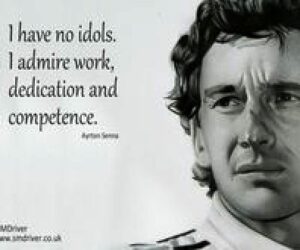 Many valid reasons. but the most important reason is that you can get the core of your work done, effortlessly, in half the time, so whatever you do after that time is either more work, if you want… and you become a star, or free time you can turn into something equally rewarding.
Many valid reasons. but the most important reason is that you can get the core of your work done, effortlessly, in half the time, so whatever you do after that time is either more work, if you want… and you become a star, or free time you can turn into something equally rewarding.
One of my teachers, a copywriter, got his start in half of his workday… he got good at the thing he was paid for, and spent the remaining time practicing copywriting.
Instead of what some of my clients do: do busy work…
Without a system, you’ll always obey Parkinson’s Law: ‘Work expands to fill the time available/allocated for its completion‘.
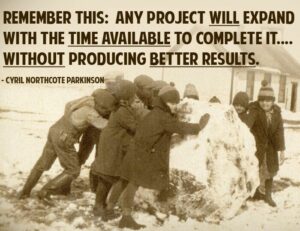 Some 20 odd years ago I was a magazine publisher.
Some 20 odd years ago I was a magazine publisher.
The magazine was monthly, and it was always late a few days.
I went to a workshop, a communication course.
In that course we were asked to speak in military terms, grain ground, attack, strategy, and such.
At one part of the workshop we were asked to pair up… and work with our partner on an issue we had.
We didn’t realize, I didn’t realize that the enemy wasn’t a person, wasn’t an army, it was a worldview, or a belief.
My ‘war’ was to double the magazine’s income. It looked impossible.
‘It takes a month to create an issue‘ was my mantra… and it looked and felt like the truth. It even looked like even a month was not enough time…
On Sunday, after the course, I arrived home and wanted to have a cup of coffee… But I had no half and half.
 I needed five minutes to get some… the corner store wasn’t too far.
I needed five minutes to get some… the corner store wasn’t too far.
It took me three minutes to get there… I talked to everyone who was in their garden on this warm Sunday afternoon.
But in the store I had a thought: what if the five minutes for a coffee-run is the same as my one month for an issue?
So on my way home, I kept my glaze on the pavement, and I got home in one minute.
It shook my world. I spent a year on developing processes after that, and exactly one year later we had two issues a month, 15 days apart. And they were on time.
Result: Double income. Was it more work? No, surprisingly it wasn’t.
And that is the point. Systems, processes, remove the non-work part of work, and make the work part like dancing… enjoyable.
The more processes you develop, the less effort life takes.
I have a process for 90% of the things I do, including how I replace the batteries in my handheld recorder… how I make my tea… how I make sure i don’t overfill my water jug…
PS: I watched the move ‘The Founder’ on Netflix. It is not a good movie… but it was, nevertheless, worth watching, for once scene.
It shows the McDonald brothers in the parking lot of their eatery with chalk in the hand.
They drew the layout of their kitchen on the pavement, and started to fine-tune their process.
After several hours of moving stuff around, they were done.
Their process was like a dance, requiring of no thought, no choices, no brain power. McDonald’s sells processes, that is their product.
When you buy a McDonald’s franchise, the real and only value is the process. The rest is eye candy…
You buy the guaranteed income and ease you’ll make it with, because you need no brain power.
Of course the promise is conditional. Conditional in you following the process, exactly.
Just like my Water Energizer… you get the results, exactly, if you follow the process exactly.
Your willingness and ability to follow a proven process is on the same level as your vibration. Unfortunately.
And your happiness…
And your level of joy in life.
You want to increase either? Increase your willingness to do things the way they are supposed to be done.
Get the videos of a recent course: The Structure to fulfill any project…
